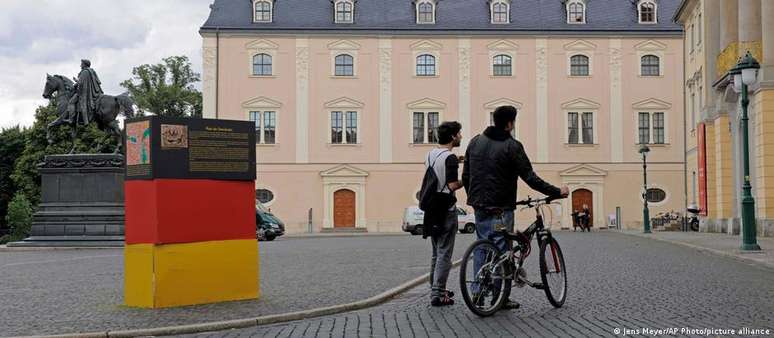Research shows that the prevalence of sentiment in the former East Germany is more than double that of Western countries. This sentiment is associated with greater support for populist parties and dissatisfaction with democracy. The feeling of being “left behind” is significantly more common in Germany’s eastern states than in its western ones, a survey conducted by the University of Jena has concluded. which is located in the German state of Thuringia.
Among Germans living in Eastern countries, in the region of former communist East Germany, around 20% say they have this feeling, compared to only 8% of residents of Western countries. In the months of June, July and October, approximately 4 thousand people were interviewed.
Political scientist Marion Raiser, who led the study, says the feeling of being “left behind” is associated with a greater tendency to support populist politicians and to be less satisfied with the functioning of democracy.
The feeling indicates that these people understand that politicians are neither interested in their regions nor adequately committed to their economic development.
According to the study, even in eastern Germany there are proportionately more regions affected by the demographic decline and the increase in the average age of its inhabitants.
It is in eastern Germany that the far-right Alternative for Germany (AfD) party achieves its highest popularity rates. Three important state elections will be held this year in the region, where the party’s support is strongest and where the party has a chance to elect its first governor, in Thuringia.
Regarding democracy, 97% of respondents said they supported this system of government. However, 56% of East German residents said they were dissatisfied with the functioning of democracy, compared to 40% of West German residents.
Difference between regions
Last October, as German reunification turned 33, the federal government released a report showing that the economic gap between West and East was narrowing, but that there were still differences in wages and wealth between the regions.
In 2022, for example, the average annual salary in Western Germany was more than 12 thousand euros higher than that received in Eastern Germany. Savings data reveal an even more pronounced inequality: In 2021, average net savings in Western countries were almost three times higher (127.9 thousand euros) than in Eastern countries, according to the German Central Bank.
Deputy Minister for East Germany, Carsten Schneider, declared at the time that the region was receiving significant investments in the high-tech and renewable energy sectors.
However, estimates from Destatis, the Federal Statistics Office, indicate that in the coming decades the number of people of working age will decrease more in Eastern countries than in Western ones.
bl/le (ots)
Source: Terra
Rose James is a Gossipify movie and series reviewer known for her in-depth analysis and unique perspective on the latest releases. With a background in film studies, she provides engaging and informative reviews, and keeps readers up to date with industry trends and emerging talents.






